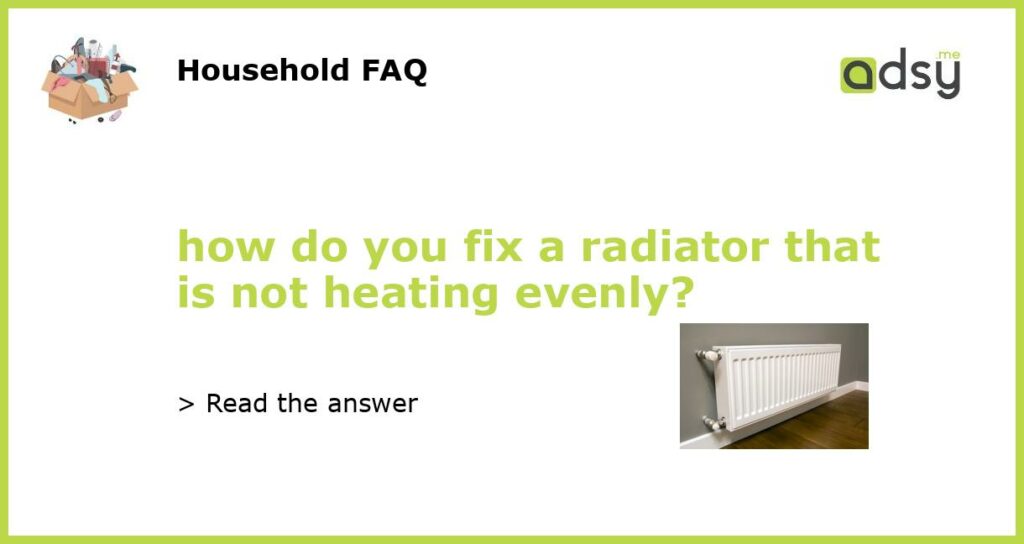Check for Air in the System
If your radiator is not heating evenly, the first thing you should do is check for air in the system. Air pockets can prevent hot water from flowing smoothly through the radiator, causing uneven heating. To fix this, you need to bleed the radiator.
To bleed a radiator, start by turning off the central heating system. Then, locate the bleed valve on the radiator. It is usually located at the top or on the side. Attach a radiator key or a flat screwdriver to the bleed valve and slowly turn it counterclockwise. You should hear a hissing sound as the air escapes. Once water starts to come out, close the valve. Repeat this process for all radiators in your home.
Balance the Radiators
If bleeding the radiator did not solve the issue, the next step is to balance the radiators in your home. Balancing the radiators means adjusting the flow of hot water to ensure an even distribution of heat. This is important, especially if you have a multistory house or zones with different heating requirements.
To balance a radiator, start by turning on the central heating system and letting it run for about an hour. Feel the radiator with your hand to determine which areas are the hottest and which areas are the coolest. Adjust the lock shield valve, which is usually located at the opposite end of the radiator from the thermostatic valve. Slowly open or close the valve until the temperature becomes even across the whole radiator.
Check the Thermostatic Valve
If your radiator is not heating evenly, the problem may lie with the thermostatic valve. This valve controls the flow of hot water into the radiator and adjusts the temperature. If the valve is faulty or stuck, it can result in uneven heating.
To check the thermostatic valve, turn off the central heating system and remove the head of the valve. Use a spanner or an adjustable wrench to do this. Once the head is removed, check for any debris or corrosion that may be blocking the valve. Clean the valve and replace the head. Turn on the central heating system and check if the radiator is heating evenly.
Power Flush the System
If none of the above solutions work, it may be necessary to power flush your heating system. Over time, sludge and debris can build up in the system, affecting the flow of hot water and causing uneven heating. Power flushing is a process that uses a high-pressure water flow to clean the entire system, including the radiators.
To power flush your heating system, it is best to call a professional heating engineer. They will have the necessary equipment and expertise to carry out the procedure safely and effectively. Power flushing can help remove any blockages and improve the overall efficiency of your heating system.
Seek Professional Help
If all else fails, it is advisable to seek professional help. A heating engineer will be able to diagnose and fix the issue with your radiator. They may need to perform more advanced procedures, such as replacing faulty valves or flushing the system with chemicals.
When choosing a professional, make sure they are qualified and registered with a recognized heating industry association. This will ensure that they have the necessary skills and knowledge to carry out the job correctly.






